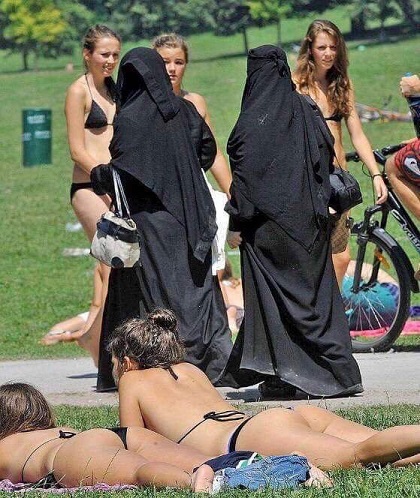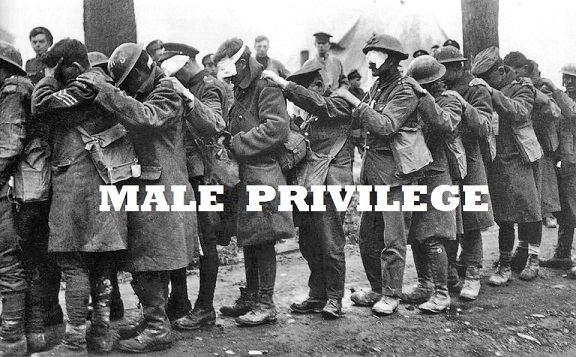The whole discussion of being labeled a “White nationalist” over at Insty’s place makes me reflect about the thing a little.
Yes, I’m white (or White). Accident of birth, both parents and sets of grandparents, great-grandparents etc. were all White. So: White.
Nationalist: a little more difficult, this one. Having been born in one nation — also accidentally, by the way: my parents were going to emigrate from South Africa to Canada before I was born, then didn’t when Mom discovered she was pregnant with me — I changed my nationality when I in turn emigrated, and became an American. [goes off for a quick Happy Dance, then returns]
Now, as to that nationalism thing: unlike the “open borders” idiots, I think that nationalism is important when the nations are culturally distinct — and I mean really distinct: the difference between a Scot and an Irishman is far less than between, say, an Italian and an Austrian. We’re talking shared cultures and common backgrounds, albeit with a somewhat different language for the Scots/Irish, and a much greater difference for the Austrians/Italians. It’s even more complicated by the fact that the Scots and Irish, mostly, have different religions (an important cultural factor) while the Austrians and Italians mostly share Catholicism. So national separation can be linguistic, or religious, or both.
For all intents and purposes, there is practically no difference between, say, the peoples of the United States and Canada — they could merge tomorrow, and very little would change. [pause to let the Québeçois separatistes get over their vapors]
I would suggest that American nationalism — a fairly recent one, compared to, say, Britain’s Anglo-Saxon nationalism which has existed for millennia — is signified by a common language and a common Anglo-Judaic-Christian heritage. Unlike the British one, which stubbornly defies change despite Leftwing attempts to suppress it, the American one is fragile, as we have traditionally been a refuge for people who want to improve their lot in life. (Note that the same has become, lamentably, true as the combined efforts of the EU and NuLabour forced immigration of alien cultures into Britain.)
Both nations have traditionally welcomed immigrants who might not have shared the British or American heritage, but assimilated as quickly as they could into the dominant culture.
Which is where the post-Modernist (“pomo”) and anti-nationalists start getting their knickers twisted, because the idea of “dominant” culture is toxic to their Utopian ideal of “we’re all the same people, really” — even though we absolutely are not.
I have said countless times that our American culture, with all its little flaws, is still the greatest culture which ever existed — it is found in our nation, and in no other. (There are similarities to others — notably, the Anglo-Saxon-Judeo-Christian societies of Great Britain, Australia and New Zealand, for example — but our American version is slightly better: I think.) Certainly, our culture is better than anything ever devised or inherited on the African continent, and has been more robust and more congenial than, say, the baleful and repressive cultures of Islam and Communism (as practiced in Slavic cultures), and the rigidly-conformist cultures of the Far East.
Ours is a culture worth preserving — and it is best preserved in our nation, because we’ve seen over and over again, it fails when attempted in other nations, with their markedly-different cultures and heritages.
The fact that our culture has its roots in “White” (European) populations is frankly irrelevant. It’s an accident of both history and geography, just like the color of my own skin, and I’m not going to go into the tangent of why: it simply is.
So my “nationalism” (a culture created largely by White people) is not something to be feared or despised: it’s both accidental and meritocratic. It most certainly is not an insult, as the Left would attempt to make it these days, because quite frankly, I’m proud of my cultural heritage and my nationalism (and my skin color is irrelevant). We find a similarly-disjunct attitude when Europeans refer sneeringly to the “American cowboy” ethos, when we Americans cherish the cowboy values of independence, self-sufficiency, hard work and, yes, being armed to sustain all the above. To us, it’s a compliment, not an insult.
And ditto my nationalism. I’m proud to be an American, I’m proud of my Anglo-Judaic-Christian cultural heritage — and I couldn’t care less about either the color of my skin or the fact that our culture was created by mostly White people, all those years ago. And I’m immensely proud of the fact that so many immigrants of different skin colors have assimilated into the dominant American culture and ditched most of their deficient home cultures for the greater American one. Like I did.






